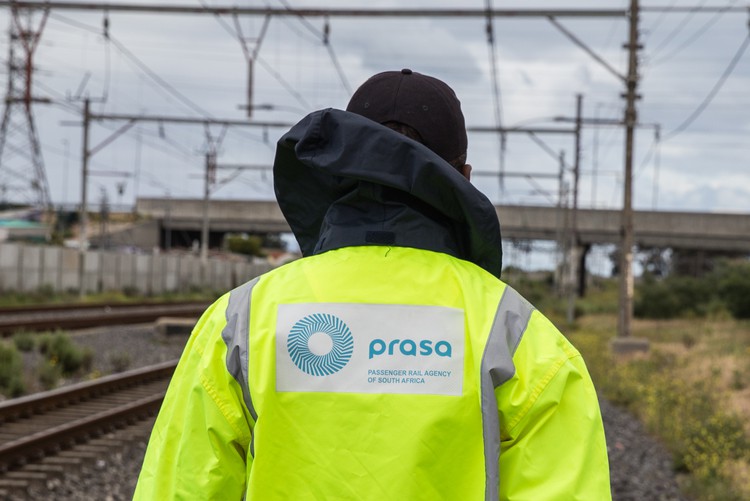

Passenger Rail Agency of South Africa (PRASA) has been ordered to reinstate its Western Cape Regional Security Manager. Archive photo: Ashraf Hendricks
8 November 2019
The Passenger Rail Agency of South Africa (PRASA) has been ordered to reinstate Western Cape Regional Security Manager Ernest Hendricks by no later than 20 November.
In a damning ruling by the Commission for Conciliation, Mediation and Arbitration (CCMA) on Wednesday, commissioner Elridge Edwards found that Hendricks’s suspension was unfair. He was suspended on 25 April 2019 after two trains were torched at Cape Town Station during the Easter Weekend. The damage caused by the blaze cost the rail agency R33 million. A suspect was arrested and appeared in court.
On 5 October 2017, we reported on a ten-page letter Hendricks had written to Tiro Holele, an executive in the Passenger Rail Agency of South Africa (PRASA) Head Office in Pretoria, describing the breakdown of security on Cape Town’s central railway line which cost PRASA R100 million in a year.
In the leaked letter, dated 31 May 2017, Hendricks stated that “it is a known fact that 80% of our [Metrorail security] staff are not PSIRA registered due to service providers who trained our staff and have failed to register the staff after completion of the training they conducted”.
On 10 November 2017 we reported how PRASA had fallen foul of the Private Security Industry Regulatory Authority (PSIRA) and was fined R3 million.
Hendricks’s letter also stated that many of the security staff could not be registered with the Private Security Industry Regulatory Authority (PSIRA) because of their criminal records. Hendricks wrote that Metrorail had promised to assist in getting their records expunged but that this never happened.
In the letter, Hendricks also wrote that in 2015 a decision was taken to transfer the staff with criminal records to other departments but “thus far this issue is still unresolved”.
On 10 October 2017 we reported how the Railway Police brushed off Hendricks’s letter and criticism.
On 16 October 2017 we published that PRASA said it was on top of security problems but its key claim didn’t match reality.
According to PRASA’s rules, Hendricks’s suspension was only meant to last for 30 days, unless the matter was complex and needed further investigation. Hendricks argued that his suspension was unfair because it had been longer than the prescribed period and was done without the permission of PRASA’s CEO.
But Mark Horn, the Benefits and Payroll manager, who had also been acting HR manager, told the CCMA that Hendricks’s suspension was necessary because “he could have influenced witnesses or tamper with evidence” during the forensic investigation.
Horn, however, revealed during questioning by Hendricks’s lawyer that PRASA had not done investigations into the six trains that were burnt during Hendricks’s suspension. Horn told the CCMA that those six trains were in transit whereas the two torched over Easter were at the station.
In his ruling on Wednesday, Edwards found that Hendricks’s suspension was both procedurally and substantively unfair.
“I find that the applicant’s continued suspension is procedurally unfair because the respondent has not obtained permission from the CEO to extend his suspension beyond the 30 days as is required … I fail to see how the forensic nature of the investigation detracted from an employee’s right to make representations as to why he should not be suspended,” he said.
Edwards added that, “Horn did not come across as a convincing witness. His knowledge of [PRASA]’s policies, which one would have expected him to know, was very limited. He appeared not to have firsthand knowledge of the forensic investigation.”
Edwards said Hendricks had suffered reputational damage because his suspension had been widely publicised in the media. “It has also taken a toll on his health,” he said.